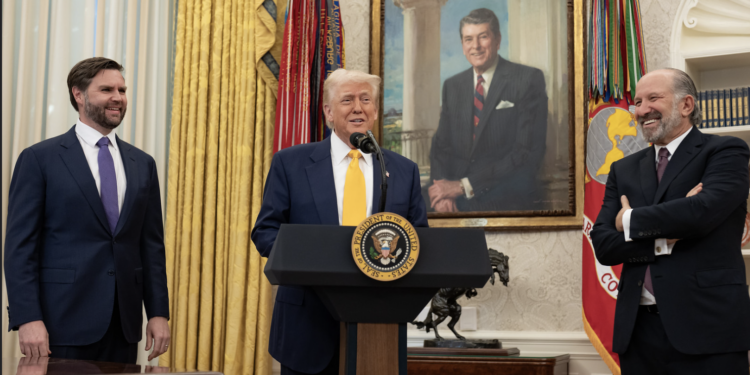President Donald Trump has signed an executive order officially designating English as the national language of the United States. The order, issued Saturday, March 1st, revokes a directive from former President Bill Clinton that required federal agencies and organizations receiving federal funding to provide language assistance to non-English speakers.
While English has long been the primary language used in government, legal documents, and public discourse, the U.S. has never had an officially designated language. Trump’s order seeks to change that, emphasizing the role of a common language in fostering national unity.
“A nationally designated language is at the core of a unified and cohesive society, and the United States is strengthened by a citizenry that can freely exchange ideas in one shared language,” the order states.
The executive order does not mandate the elimination of language services but allows government agencies and federally funded organizations to decide whether they will continue offering multilingual services.
“In welcoming new Americans, a policy of encouraging the learning and adoption of our national language will make the United States a shared home and empower new citizens to achieve the American dream,” the order states. “Speaking English not only opens doors economically, but it helps newcomers engage in their communities, participate in national traditions, and give back to our society.”
This aligns with Trump’s longstanding position on the English language. During a 2024 Conservative Political Action Conference speech, he criticized the need for multilingual government services, stating, “We have languages coming into our country. We don’t have one instructor in our entire nation that can speak that language… It’s a very horrible thing.”
More than 30 states have already adopted English as their official language, according to the advocacy group U.S. English. However, previous efforts to pass similar legislation at the federal level have failed.
The announcement has drawn mixed reactions. Supporters argue it promotes national cohesion and encourages immigrants to integrate into American society. Critics, including Hispanic advocacy groups, have expressed concern about potential barriers for non-English speakers, particularly in accessing government services.









